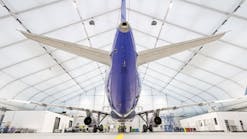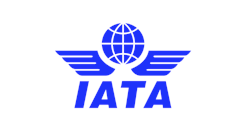Resilience of Amadeus Businesses and TravelClick Consolidation Drive Double-Digit First Half Growth
Amadeus IT Group S.A maintained its positive growth trend in the first six months of 2019, thanks to the solid operating performances of its Distribution and IT Solutions businesses, the consolidation of TravelClick, since October 4, 2018, and a positive foreign exchange impact. These drove double-digit growth in revenue and EBITDA, while adjusted profit increased 9.9 percent to €666.7 million, compared to the same period of 2018.
Luis Maroto, president & CEO of Amadeus, commented:
“The resilience of our businesses has allowed us to maintain a strong growth trend in the first half of the year despite a weaker travel industry. Amadeus’ IT Solutions and Distribution businesses continue to grow, thanks to an expanding customer base. Additionally, we are progressing with our diversification strategy following the acquisition of TravelClick and ICM, thereby enhancing our presence and reach in the hospitality and airport IT segments. With our global presence and our strong focus on investments in technology, we should maintain this positive growth trend”.
Business highlights for the first half of the year.
Distribution
Revenue in this segment grew 4.7 percent to €1,637.0 million.
The travel agency air booking industry declined 1.4 percent in the second quarter of the year, due to fewer working days compared to the same period of 2018 and the bankruptcy of a large Indian GDS carrier. Excluding India and the working days impact, the travel agency air booking industry grew modestly in the quarter. In the first half of the year, the industry decreased 0.7 percent. North America was the fastest growing region. In turn, Western Europe, Asia Pacific and Middle East-Africa showed a contraction, impacted by strikes, macroeconomic developments and geopolitical events.
As in the first quarter, Amadeus continued to grow despite the less benign environment. Our bookings in the first half of the year outperformed the industry, supported by continued market share expansion across all regions except Asia Pacific. North America was our fastest growing region in the period, with a 14.0 percent increase, while Western Europe continued its positive growth trend, on the back of market share gains. On the other hand, our performance in Asia Pacific and Middle East-Africa, impacted by the industry’s booking decline, showed a contraction. Amadeus’ Asia Pacific bookings were also affected by the cancellation by an Indian GDS carrier of our distribution agreement at the end of 2018, and by the liquidation of an Indian GDS carrier in April 2019.
Securing content for our travel agents is key to expanding our market share and continued growth. During the second quarter, we signed 5 new contracts or renewals of content agreements with airlines, including Mauritania Air, reaching a total of 12 for the first half of the year.
Another milestone in this segment during the first six months of the year was the 10-year extension of our longstanding distribution partnership with Etihad Airways. This means travel sellers connected to Amadeus will be able to offer travelers Etihad Airways’ full range of content.
Reflecting Amadeus’ ongoing commitment to drive NDC, New Distribution Capability, forward, in July we launched Amadeus Travel API, an NDC-enabled solution providing travel agencies worldwide access to new airline content and fares via an NDC connectivity. Travix co-designed the solution with Amadeus and has had live NDC bookings in production since late last year. Travel agencies including Travix, AERTiCKET, American Express Global Business Travel, BCD Travel, House of Travel and integrated tourism group TUI are to become early adopters of this new API, giving them first access to the solution and content offer by airline customers via an NDC connectivity.
Our merchandising solutions continued to generate interest from our customers. During the first half of the year 9 airlines signed up for Amadeus Fare Families, and 4 airlines contracted Amadeus Ancillary Services for the indirect channel, including Korean Air. In total, at the end of June, 89 airlines had signed up for Amadeus Fare Families (of which 77 have implemented the solution) and 156 had contracted Amadeus Airline Ancillary Services.
IT Solutions – Airline IT
This segment continued delivering healthy growth, on the back of higher passenger boarded volumes. Passengers boarded grew 6.6 percent during the quarter, to 947.0 million, supported by 2018 implementations and the implementations to date in 2019. Organic growth of 6.6 percent also contributed to this passenger boarded increase. All these factors mitigated the negative impact of the de-migration of LATAM Airlines Brazil from our platform during the second quarter of 2018, the cessation of operations of Germania and bmi Regional and the suspension of operations of Avianca Brasil and Avianca Argentina in May 2019 and June 2019, respectively.
During the quarter, Flybe completed the migration to the Altéa Suite, allowing the carrier to offer passengers an enhanced digital experience including personalized offers, tailored pricing and mobile disruption management. The airline also signed up for Revenue Integrity. Additionally, Moldavian low-cost airline Flyone contracted New Skies and Sun Country migrated to New Skies.
In July, Azerbaijan Airlines signed for the full Altéa suite and also for Revenue Management solutions. Also that month, Bangkok Airways migrated to Altéa. The carrier implemented the Reservation, Inventory, Ticketing and Departure Control modules.
Our up selling and cross-selling efforts continued during the period. In May, LATAM Airlines Group signed a multi-year agreement to implement two components of the Amadeus Sky Suite by Optym: SkyMAX and SkySYM, enabling LATAM to optimize their flight schedules.
In July, Alaska Airlines selected Amadeus as its revenue management partner. With this long-term contract, Alaska Airlines, the fifth largest carrier in the United States, becomes the first non-Altéa carrier, and the largest globally using Amadeus Revenue Management.
Also in July, Cathay Pacific contracted Amadeus Altéa NDC. This will help the airline to effectively distribute new content and fares through an NDC connectivity across channels, enhancing its retailing capabilities.
New Businesses – Airport IT
Skyserv, Greece’s leading independent ground handler, contracted and implemented Altéa Departure Control System for Ground Handlers for its 37 airports. Following the implementation, Skyserv is now able to manage load control operations centrally from a single location, allowing greater efficiency and ensuring more punctuality and a better experience for travelers.
In May, Amadeus took another step towards the creation of a common, centralized industry platform for biometrics. Working with Adria Airways, Ljubljana Airport the airport’s home carrier, and LOT Polish Airlines, 175 participating passengers were successfully boarded in record time. The average boarding times were reduced by approximately 75 percent meaning boarding took just two seconds per passenger, rather than the typical five to ten seconds.
In July, Heydar Aliyev International Airport in Baku (Azerbaijan) became the world’s first fully cloud-based airport thanks to the implementation of Amadeus’ Airport Common Use Service (ACUS) and Airport Operational Database (AODB). The move represents the first time an airport has relied on the cloud to deliver all its core systems and will mean that now all players at Baku will be working from a single, real-time and consistent view of operations without the need for manual updates.
We also had expanded our footprint in North America, with several customers signing up for Amadeus Extended Airline System Environment (EASE), including Eagle County Airport, Colorado, Kelowna International Airport (Canada), South Bend International Airport (Indiana), Santa Barbara Airport (California) and Daytona International Airport, Florida.
In June, we completed the acquisition of ICM Airport Technics. ICM, headquartered in Sydney, Australia, specializes in the provision of passenger automation and self-service bag drop solutions for customers, principally in Asia-Pacific and Europe.
New Businesses – Payments
In May, we launched Amadeus B2B Wallet Partner Pay in partnership with Elavon and Mastercard. This new solution allows agencies to pay using an airline branded virtual card, reducing the cost of payments by up to 70% compared to existing methods. Thai Airways and Swedish travel agency Select Travel were the pilot customers.
The new solution, which is an extension of Amadeus’ B2B Wallet, is integrated into the travel agency booking flow allowing each payment to be made by a single use MasterCard virtual card. Elavon acts as the acquirer so the airline can accept payments initiated by a wide variety of issuers within MasterCard's global network. This approach automates payment reconciliation whilst enhancing fraud prevention and protecting agencies from the risk of supplier defaults.
In June, Ypsilon, one of the largest aggregators of LCC content, integrated Amadeus’ B2B Wallet Solution within its booking platform to simplify agent payments to Low Cost Carriers. By integrating Amadeus’ B2B Wallet solution, agents can now automatically generate a virtual card quickly and simply within the Ypsilon booking flow. Each virtual card is unique to each individual booking making reconciliation simple whilst reducing fraud.
Financial highlights for the first six months of the year
In June 2019, our shareholders approved a final 2018 gross dividend of €1.175 per share during the General Shareholders’ Meeting. This represents a 3.5 percent increase compared to the 2017 dividend and 50 percent of the reported profit, adjusted to exclude TravelClick acquisition related effects. An interim dividend of €0.51 per share, gross, was paid in full on January 17, 2019, and a complementary dividend of €0.665 per share, gross, was paid on July 12, 2019.
Net financial debt, as per our credit facility agreements’ terms, amounted to €2,965.0 million as of June 30, 2019, representing 1.37x times last-twelve-month EBITDA.




